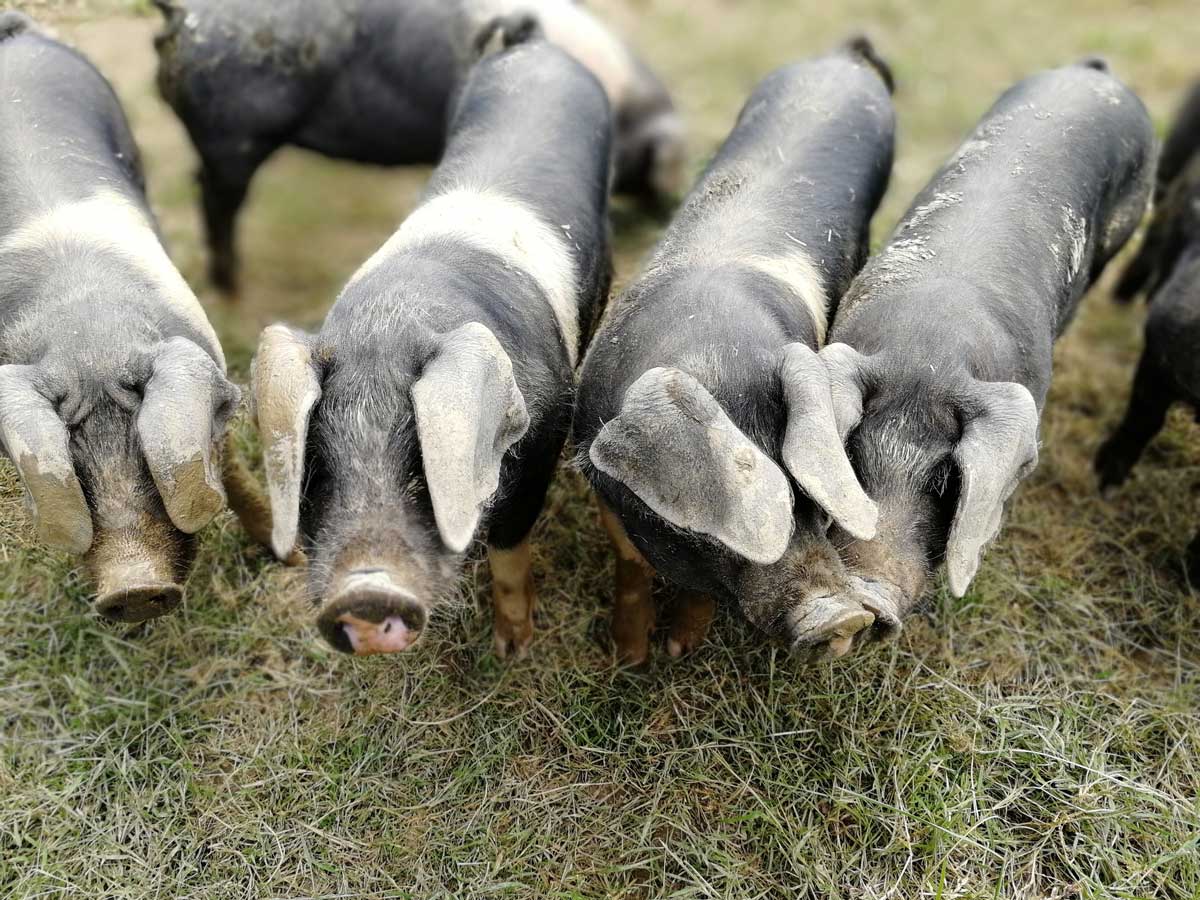 Photo credit: Vicki Hird
Photo credit: Vicki Hird

Trade: what might be the consequences of Brexit for farm antibiotic use?
Leaving the EU may seriously undermine the quality of food that is produced in and imported into the UK, including implications for farm antibiotic use and antimicrobial resistance.
A blog by Cóilín Nunan and Suzi Shingler of the Alliance to Save our Antibiotics. Sustain is a co-founder of the Alliance with Compassion in World Farming and the Soil Association and continues to sit on the steering gruop.
In some Brexit scenarios, the UK will no longer come under the EU remit for regulated food safety, and for the first time will be on our own in a globalised world. In particular, we are concerned that there could be real consequences for farm antibiotic use and the fight against antibiotic resistance.
British farmers have been making major efforts to reduce or eliminate routine antibiotic use, and have managed to cut total use by 40% in just three years. But if the UK crashes out of the EU without a deal, there will be major new financial pressures on farmers which could lead to a worsening of standards. If British animals are kept in cheaper, more intensive conditions, they may end up with higher levels of disease and antibiotic use.
After a no-deal Brexit, large pig producers in the US, where antibiotic use per pig is twice the UK level, will be able to compete with British farmers for business. In China, antibiotic use per pig is over five times the UK level and similar overuse can be found in other Asian countries.
If there is “no deal” with the EU, then World Trade Organisation (WTO) rules come into play. These require that countries putting tariffs on imports set them at the same level for all WTO countries with which they do not have a trade deal. So the UK and the EU would put tariffs on meat and dairy traded between them. But a crucial point is that the post-Brexit tariffs the UK has announced, are in many cases at a much lower level than the EU level, which will put British farmers immediately at a commercial disadvantage.
The difference is particularly large for pig meat, where the UK tariffs will be 87% lower than the EU equivalent. This also means that the tariffs the UK currently sets on pig meat coming from the US, Asia or South America will be cut overnight by 87% at the very same point when tariffs are imposed on UK exports to the EU.
At present, over 60% of pig meat consumed in the UK is imported from the EU, and nearly half of that comes from Denmark and the Netherlands where antibiotic use per pig is less than half the UK level. But after a no-deal Brexit, large pig producers in the US, where regulations are weaker and antibiotic use per pig is twice the UK level, will be able to compete with British farmers for business. In China, antibiotic use per pig is over five times the UK level and similar overuse can be found in other Asian countries.
Tariffs are also going to be cut for beef (47%) and for poultry meat (40%), with potential consequences there too. The problems could be increased if the UK agrees a trade deal with the US or other countries that greatly overuse farm antibiotics, and tariffs are cut to zero. Antibiotic use in cattle in the US is eight times higher per animal than in the UK, and use in poultry is three times higher.
Of course, any trade deal could, and should, include guarantees that meat and dairy have not been produced with irresponsible levels of antibiotic use. But how likely is this to happen?
Some of the signs are not good. In January 2022, the EU will introduce a very welcome ban on all routine farm antibiotic use, including purely preventative mass medication. But unfortunately despite claiming that it is supports high standards, our own government is refusing to commit to implementing such a ban here, preferring to rely on voluntary action. Furthermore, the US is strongly opposed to this EU action, with its Chief Agricultural trade negotiator claiming it was a “a thinly veiled reason to create a trade barrier” and saying that the US would use trade talks with the EU to pressure it into changing course.
While the US is keen to push US food and farming standards, the UK appears amenable. Most recently, Defra's Chief Scientific Adviser came out in support of US beef from hormone-treated cattle and US chlorinated chicken, which are currently banned from the UK because of the EU law.
A lot more work remains to be done to reduce UK farm antibiotic use to acceptable levels and to improve animal health and welfare. But instead of implementing policies aimed at achieving this, the risk is that the progress made so far may be reversed. This is why there is a need to for an open and honest discussion on trade policies. Without this, the UK market may become increasingly dominated by meat and dairy produced with poor environmental, animal-welfare and antibiotic standards.
The Alliance to Save our Antibiotics are hosting a Trade Roundtable in London on 17 September, 2019. Spaces are limited but if you are interested in attending email: sshingler@saveourantibiotics.eu
Sustainable Farming Campaign: Pushing for the integration of sustainable farming into local, regional and national government policies.
Sustain
The Green House
244-254 Cambridge Heath Road
London E2 9DA
020 3559 6777
sustain@sustainweb.org
Sustain advocates food and agriculture policies and practices that enhance the health and welfare of people and animals, improve the working and living environment, promote equity and enrich society and culture.
© Sustain 2026
Registered charity (no. 1018643)
Data privacy & cookies
Icons by Icons8







